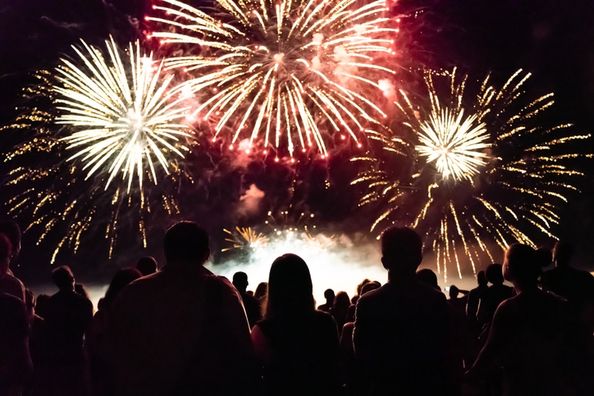Exposure to various sounds can affect your hearing and cause damage, including temporary or permanent hearing loss, depending on how loud the noise is and the length of time you are exposed to it. Noise-related hearing loss is common, affecting nearly 15 percent of adults in the United States (U.S.). Hearing damage from loud noises accumulates over time and subtle changes in your hearing may not always be noticed. It is important to be aware of the volume of sounds you are exposed to and take precautions to preserve your hearing. Volume, which is measured in decibels (dB), is considered safe in the workplace when it is below 85 dB for an eight hour shift, however, the National Institute for Occupational Safety and Health recommends limiting your exposure to noises louder than 70 dB to be safe. If your job exposes you to sounds that exceed the recommended limit, an audiologist can fit you for custom earplugs to protect your hearing. Outside of the workplace, certain recreational activities are notorious for their loud sounds and can put you at a higher risk for hearing loss as well. No matter where you may be exposed to loud noises, it is important to take precautions to protect your hearing.
Infants and small children are more sensitive to loud noises because their ear canal is still developing and is shorter than an adult. To protect your whole family’s hearing, you should take preventive measures when participating in the following activities:
Watching Fireworks
Most fireworks produce sounds as loud as 125 dB, making them unsafe for babies and toddlers. If you attend a fireworks display with small children, we recommend keeping their ears covered and viewing them from a distance of at least 50 – 60 meters. Small children can use foam-filled ear cups that are available over-the-counter. For adults and older children, earplugs work well.
Swimming
Depending on the curvature of their ear canal, or if there is wax buildup, water may accumulate in the middle ear during water-based activities like swimming. Typically the water is able to work its way out of the ear naturally, but, in some cases, the fluid becomes trapped and can cause an outer ear infection known as “swimmer’s ear”. Swimmer’s ear can lead to inflammation and/or infection in the lining of the ear canal that can block the ear canal and cause pain, ringing in the ears and temporary hearing loss. Wearing earplugs whenever you are in the water can help prevent infections and keep water out of your ears. If your child experiences pain and hearing loss, you should have their ears checked right away by their pediatrician, otolaryngologist (ENT) or an immediate care physician.
Baseball Games & Sporting Events
From cheering crowds to music blaring from the speakers, watching a baseball game or sporting event can be hard on your ears. In fact, a 2015 study by the University of Michigan found average noise levels at a baseball game were 94 dB, even reaching as high as 114 dB. Prolonged exposure to noise of this level, even at the average of 94 dB, for longer than 30 minutes, can lead to hearing loss. Before heading to a sporting event, be sure to pack earplugs for the whole family.
Parades
Parades feature a variety of sounds, from marching bands and sirens to floats and engine noise that may be considered safe for adults, but can be harmful for infants and small children. To be on the safe side, keep small children’s ears covered with foam-filled ear cups.
Outdoor Concerts
Outdoor concerts and music festivals are a great way to unwind, but are often louder than indoor concerts. When concerts are held indoors, the sound can be absorbed and better contained. Sounds at an outdoor venue are widely dispersed, requiring musicians to turn up the volume. The average concert volume often exceeds 100 dB, well above the 85 dB recommendation. You can protect your hearing by opting for lawn seats, sitting away from speakers and using disposable earplugs.
Car Racing
Millions of Americans enjoy watching car races each year. From NASCAR to Indy races and stock cars, these events produce sounds between 90 – 115 dB and can reach as high as 130 dB. Loud noise from the crowds, engines and venue speakers can be dangerous for both adults and children. To keep everyone safe, pack earplugs for the whole family.
Motorcycles and convertibles
Taking a ride on a motorcycle or in a convertible can expose you to loud noise and pressure from the wind, especially at accelerated speeds. If you are traveling at a speed of 65 miles-per-hour, noise generated by the wind can be as high as 103 dB. While it is not safe to wear earplugs while operating a vehicle, custom hear-through earplugs that allow you to hear traffic noises while blocking the wind can help. Laws permitting these earplugs may vary by state, so make sure to check each state’s policy before heading on a cross-country road trip!
Firearms
Approximately 40 million people participate in target shooting each year in the U.S. Most gunshots, even from smaller caliber firearms, produce sounds that range from 120 – 140 dB, which can cause immediate, serious damage to your hearing. It is critical that you use earplugs — we recommend doubling-up on ear protection and wearing earmuffs as well, whenever you use a firearm.
Yard work
Tools used for yard maintenance produce sounds averaging between 80 – 105 dB. In general, electric-powered tools are quieter than gas-powered options. In addition to wearing earplugs while performing yard work like mowing grass, operating leaf blowers or trimming hedges, keeping up with equipment maintenance and ensuring your tools are functioning properly can also help keep noise levels low.
Planning ahead and packing ear protection can significantly reduce your risk of noise-related hearing loss. As a general rule of thumb, if you think noise may be too loud, it probably is. In addition to taking preventive measures to protect your ears, getting your hearing checked periodically by an audiologist can help identify changes to your hearing over time, and allows you to take action if necessary.
Hearing loss is common, affecting approximately one in four adults by the age of 65. We recommend getting a baseline audiogram performed by the age of 60 if you are not experiencing any hearing-related symptoms. If you have hearing-related concerns including ringing in the ears, a family history of hearing loss or are frequently exposed to loud noises at work or during recreational hobbies, we recommend starting your screenings earlier. If you’re exposed to sounds that exceed 85 dB for an eight hour shift at work, custom ear plugs may be recommended to protect your hearing.
Learn more about our audiologists or schedule a hearing assessment
Health Topics:







